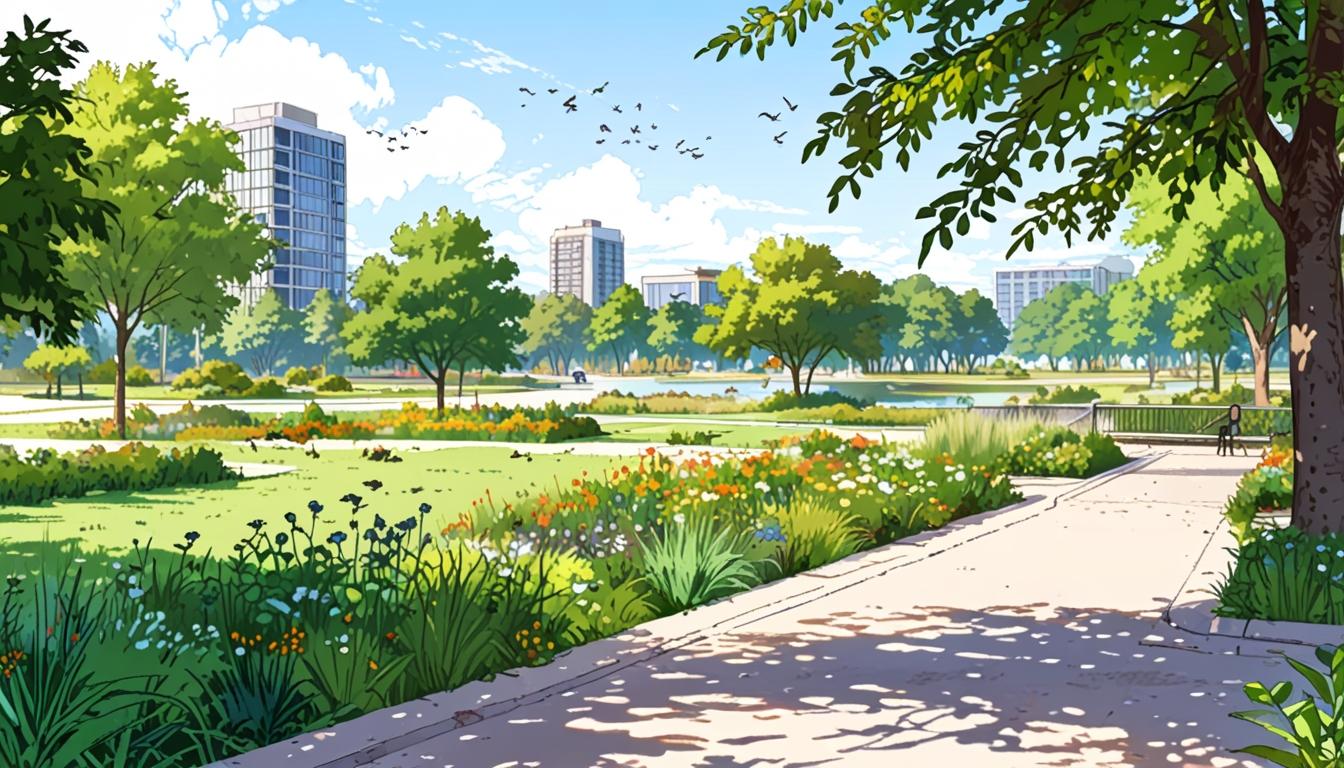A proposed Bill introduced by Green Party MP Sian Berry aims to prohibit public sector bodies, including local councils, from using certain toxic weedkillers such as glyphosate on land they manage in English towns and cities. The MP for Brighton Pavilion is calling for the ban as part of efforts to address the ongoing nature crisis, highlighting the importance of protecting urban biodiversity.
Ms Berry’s Plant Protection Products (Prohibition on Public Sector Use) Bill will be debated in Parliament on Friday. If passed, the legislation would prohibit councils from using specified professional-grade chemical weedkillers on public land like verges and parks from 2028 onwards, with the prohibition extended to other public authorities by 2031.
The MP told the PA news agency that the UK Government’s current approach shows “worrying attitudes to nature” in several policies, but said this Bill offers lawmakers a practical way “to genuinely do for nature to make up for that slightly.” She emphasised the impact of herbicides like glyphosate on urban insect populations, which in turn support bird species such as swifts and starlings.
Swifts, known for feeding exclusively on flying insects, have been in significant decline. Ms Berry described a Sussex rural lane known locally as the ‘toad road’ in Brighton, a vital migration route for amphibians, where vegetation growth is crucial for their safe passage. She explained that excessive use of herbicides threatens such biodiversity corridors, reducing habitats for insects, amphibians, birds and other wildlife.
The MP also criticised the trend of labelling overgrown urban green areas as “grey belt,” arguing these spaces provide valuable habitats and biodiversity. She acknowledged the financial pressures councils face, noting that manual weed removal is labour-intensive and costly compared to chemical spraying. To address this, she called for dedicated funding to help councils transition away from weedkillers.
Several councils have already taken steps to reduce their reliance on glyphosate. South Kesteven District Council in Lincolnshire recently agreed to reduce herbicide usage and seek alternatives balancing biodiversity with safety, cost, and maintenance concerns. Meanwhile, Brighton and Hove City Council reintroduced a controlled use of glyphosate last year after five years relying solely on manual weeding, citing challenges such as weed roots damaging footpaths and clogging drains. The council affirmed it would not apply glyphosate to wildflowers unless they presented a hazard.
Richard Benwell, chief executive of the Wildlife and Countryside Link, praised Ms Berry’s Bill as “an excellent proposal” that would help liberate urban environments from “harmful and unnecessary chemical use.” He highlighted that glyphosate sprayed around towns and cities can destroy habitats and wildlife food sources, as well as contribute to chemical pollution in rivers. Mr Benwell observed that numerous public bodies in the UK and internationally have recognised that frequent chemical herbicide use contradicts ambitions for a sustainable green future.
The parliamentary debate scheduled for Friday will determine whether the Bill takes a step towards phasing out glyphosate and similar weedkillers in public urban spaces in England, with implications for biodiversity conservation and urban nature resilience in the years ahead.
Source: Noah Wire Services
